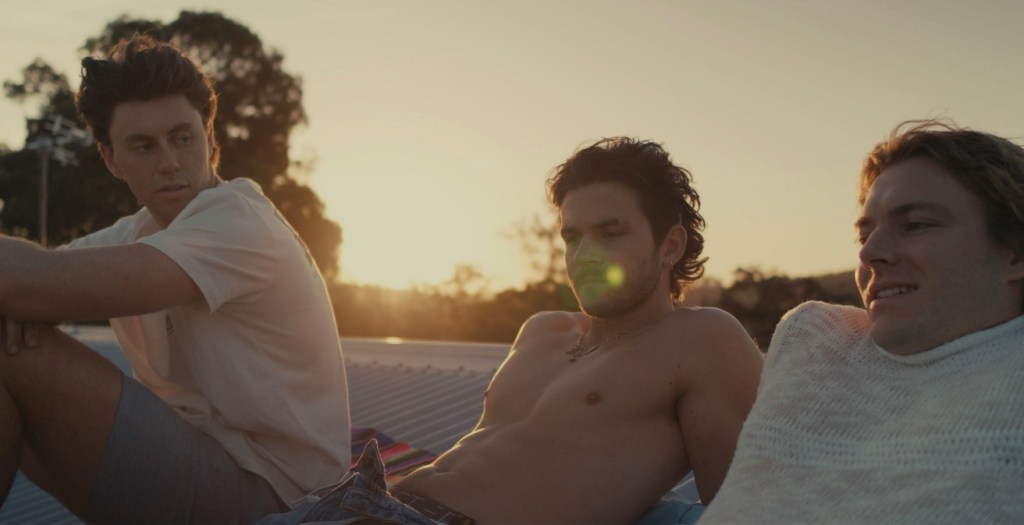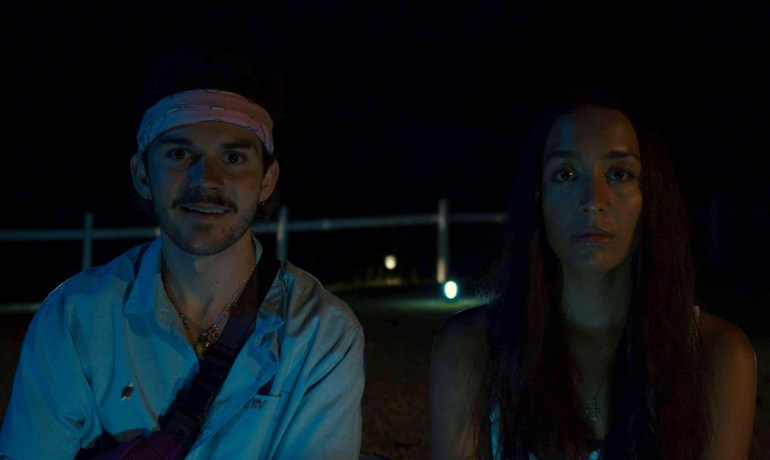The worlds of real estate and film may seem like strange bedfellows, but they are inextricably linked for Savanna Crasto.
Not only did her earnings from working as a real estate agent help fund the establishment of her production company The Colour Series in 2021 but she believes the experience prepared her well for her more creative pursuits.
“If you look at the act of actually being a real estate agent, you are either providing someone with the ability to have a home that they’re going to create memories in and build a certain chapter of their life,” she said,
“Or, you’re helping someone say goodbye to all of that.
“That emphasis on the people really plays into what I feel about film, because film is about fostering a transition in someone’s life and being their authentic self.”

The Gold Coast-based creative, whose acting credits include The Portable Door and the upcoming second series of Darby and Joan, is in post-production Love and Lemon Trees – her fifth feature as writer/director/producer/actor in 18 months, following Tender Napalm (2021), The Psychology of Beauty (2021), Chasing Lemons (2022), and A Walk Along Sunset (2024).
Filmed on the Gold Coast in November last year, the coming-of-age drama centres on a group of friends grappling with the chasm of grief that leaves them on the brink of isolation, as the world keeps moving forward with or without them.
Crasto wrote and directed the film alongside Pierce Gordon, and featured in the cast with Joel Drabble and James Munn. There are plans to submit the film to festivals across the country next year.
She said the story was borne out of a desire to want people to feel as though their feelings and their emotions have a space, and that “no matter how they are reacting or coping, there is a space for that”.
“My thesis statement to this film is that grief is love in its pure form, unexpressed,” she said.
“I find grief is very interesting, because you don’t just grieve for someone when they pass away; you grieve versions of yourself, you grieve things that have happened to you, you grieve dreams, you grieve all these things.
“We talk about the five stages of grief, and I hate that, because it’s not a linear process and what happens to our bodies isn’t linear.”
Crasto’s approach to her craft has been honed internationally across the past decade, with the 25-year-old undertaking studies at Denmark’s University of Copenhagen, Harvard University in the US, and the Queensland University of Technology.
I love Danish cinema, and I love the arts over there, because it is like this time capsule that hasn’t been influenced by modern time
Savanna Crasto
While in Denmark in 2019, she developed an appreciation of theatre, sparking a desire to inspire film audiences the way Denmark’s stages had inspired her.
“I love Danish cinema, and I love the arts over there, because it is like this time capsule that hasn’t been influenced by modern times,” she said.
“The act of participating in theatre is this really raw and expressive form of art, which is why when I made The Colour Series, the whole concept was not just incorporating colour theory, but it’s diffused with theatre.
“The first film we did was a play, and we shot the two-hour film with nine shots. Kept the script the same, but we filmed it like a film.”
Crasto is already in pre-production of her sixth feature, Artistry of the Polter Giest, which she will star in alongside Arcadius Fimone.
Set to be filmed early next year, the story explores sexual assault but focuses on power relations rather than gender cliches.
“Sexual assault is unbiased to who it affects,” she said.
“A lot of films are very female driven, but that really puts it into a box, and it’s like a fight against the genders.
“Even though it’s important to get those stories out, that divide stops us from actually making a change with this.
“It’s a really big issue when we talk about sexual assault. It is as much my problem as anyone else’s, and it’s as much a woman’s problem as a man’s problem. It’s a people problem.”


